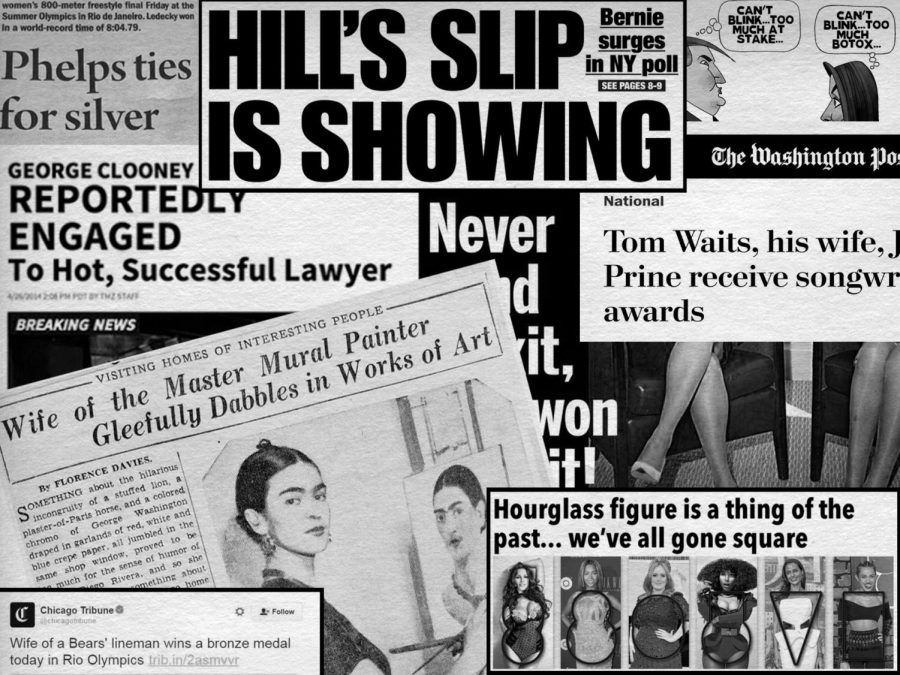The Dangers of Subtle Misogyny
Many women in their lives, upon being treated badly or disrespected by a man, cannot help but think, “am I being treated this way because I am a woman?” These sentiments are interpreted by some as dramatic, sensitive, and self-pitying. Yet, despite an inward search for bias and presumed good intentions, intuition seldom lies. Subtle misogyny is everywhere and is difficult to recognize for those who do not experience it.
Women are regularly insulted when calling out misogynist behaviors and laughed at for expressing genuine concern. Instead of reflecting on criticism, some may jump to their own defense, instantly claiming they are not sexist in their responses. It is a common misconception that one must be an obnoxious, misogynistic womanizer to make offensive comments or act in a way that makes women uncomfortable. In reality, many who make these kinds of microaggressions are loving fathers, husbands, and brothers to amazing women, and some are even women themselves.
Feeling subtle misogyny is not only experienced by those who are easily offended. Goop, the snake oil company run by Gwenyth Paltrow, calls subtle sexism “tempting to downplay,” while Forbes, a popular business magazine, says “‘friendly’ sexism is often ignored.” Both of these wildly different sources comment on the problem that objections to subtle misogyny are not taken seriously. Their concerns are not unfounded, as these experiences have many real consequences for women, such as causing burnout, preventing women from achieving leadership positions, and invalidating their identities.
In a study produced by the National Academy of Medicine, burnout among women physicians is around 20 to 60 percent higher than burnout among their male counterparts. These women describe their burnout as being caused by “work related stressors,” especially gender bias and discrimination. As an example, the study cited a review of introductions for speakers at internal medicine departments, and found that the men were more likely to be introduced using their professional title while the women were usually referred to only by their first name. Although in these situations, women are given a seat at the table, they are not respected. A lack of respect in the professional world can be stressful, and a difficult obstacle to overcome, leaving many women feeling insecure and under-confident in an important aspect of their lives.
A similar lack of respect can be observed in schools. Take dress codes as an example. On principle, dress codes are completely reasonable; asking students to dress somewhat modestly in a somewhat formal setting like school is not a hard ask. However, there is underlining sexist messaging in how dress codes are justified, with the most common justification stating that dress codes exist so that students, typically boys, do not get distracted. Instead of teaching young boys to not ogle women inappropriately, dress codes teach that women need to cover themselves. This sentiment is particularly dangerous when you relate it to potential implications for the young women outside of school.
This same idea is echoed to victims of rape when people claim they were “asking for it” because of what they were wearing. The blame should be on the perpetrators of sexual assault, not the victims. Clothing is not consent to engage with someone in an unwanted and inappropriate manner. The subtle misogyny in dress codes is part of a rape culture that blames the victim of harrasment, leaving many women feeling scared, restricted, and caged.
I remember an instance last year when one of our school’s vice principals came on the loudspeaker to make an announcement claiming the girls at our school needed to respect the dress code. She made a remark saying Justin Bieber was not coming to our school so we do not have to impress him with what we are wearing. This statement perpetrated the idea that women dress and express themselves to impress men, furthering the false and harmful notion that women exist only to please men, and causing men and boys to think unwanted advances and assaults are socially acceptable.
Just because we do not live in the age of A Handmaid’s Tale, when women were chained to the kitchen and sold to sexual slavery, does not mean misogyny is solved. Additionally, it becomes harder to fight back and challenge patriarchal cultures when sexism is disguised. The belief that women are somehow inferior to men still exists and manifests in the form of subtle misogyny. Oppression still exists when the men in power make comments and decisions that undercut the capabilities and agency of women. Subtle sexism is everywhere, and it is a threat to the dignity and respect that all women, like all people, deserve.


